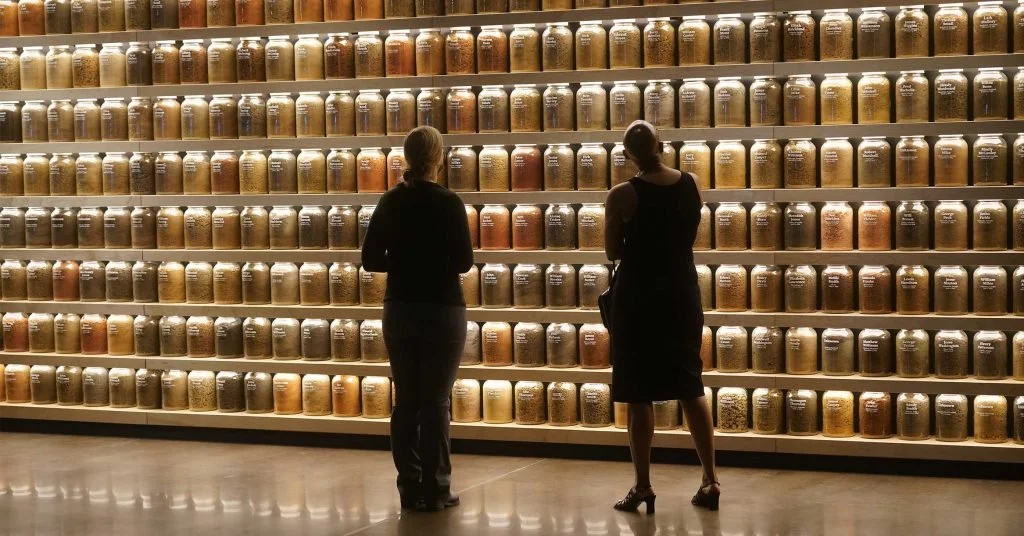Equal Justice Initiative

“Slavery didn’t end in 1865. It just evolved.” This is the central thesis of Bryan Stevenson, civil rights attorney and founder of the Equal Justice Initiative in Montgomery, Alabama.
Beyond providing legal representation to those who have been wrongly convicted, EJI opened the National Memorial for Peace and Justice to honor victims of lynchings, as well as The Legacy Museum, which traces links between enslavement to mass incarceration.
In the years leading up to establishing the memorial and museum, 1504 partnered with the EJI on communication planning and a series of projects to raise awareness for its mission as well as shift public opinion to confront the legacy of racial terrorism.
select works
Soil Collection Project
1504 worked with EJI to commemorate and recognize the traumatic era of lynching by collecting soil from lynching sites across Alabama. We documented this community initiative through stories now featured in the Legacy Museum, in collaboration with Pulitzer Prize finalists, Chip Brantley and Andrew Beck Grace.
Community Remembrance Project
EJI has researched more than 4,000 racial terror lynchings in 12 Southern states between the end of Reconstruction in 1877 and 1950. This project recognized victims by erecting historical markers as part of truth and reconciliation efforts.
“True Justice” — Trailer
Feature-length documentary from Kundhardt Films that follows Bryan Stevenson’s struggle to create greater fairness in the criminal justice system. 1504 served as a production unit on the film, which premiered on HBO and won a Peabody Award.
Capital Campaign
1504 supported national fundraising campaigns to help raise over $20 million for EJI’s sites in Montgomery, which now attract over half a million people per year from around the world.
GALLERY
![On a hilltop overlooking Montgomery is the nation’s first comprehensive memorial dedicated to the legacy of Black Americans who were enslaved, terrorized by lynching, humiliated by racial segregation, and presumed guilty and dangerous [from EJI].](https://images.squarespace-cdn.com/content/v1/662a8dee66649818195606a2/a4b75c3f-27a9-48d1-9668-b77ad5e3812c/EJI+Memorial+Columns.jpg)
On a hilltop overlooking Montgomery is the nation’s first comprehensive memorial dedicated to the legacy of Black Americans who were enslaved, terrorized by lynching, humiliated by racial segregation, and presumed guilty and dangerous [from EJI].

On the site of a cotton warehouse where enslaved Black people were forced to labor in bondage, the Legacy Museum tells the story of slavery in America and its legacy through interactive media, first-person narratives, world-class art, and data-rich exhibits [from EJI].
![Mr. Stevenson and his staff have won reversals, relief, or release from prison for over 140 wrongly condemned prisoners on death row [from EJI].](https://images.squarespace-cdn.com/content/v1/662a8dee66649818195606a2/1731784788089-AQESQREQF2AAJNGKES5R/EJI%2B%25E2%2580%2594%25C2%25A0Bryan%2BStevenson.jpg)
Mr. Stevenson and his staff have won reversals, relief, or release from prison for over 140 wrongly condemned prisoners on death row [from EJI].

1504’s work screened at EJI’s Peace and Justice Summit featuring Rep. John Lewis, Ava DuVernay, Gloria Steinem, and John Legend.
![“True Justice” offers a rare glimpse into the human struggle that is required when the poor and people of color are wrongly condemned or unfairly sentenced, and explores the personal toll it takes [from EJI].](https://images.squarespace-cdn.com/content/v1/662a8dee66649818195606a2/1731784845199-M0MT3ZNW734ZJTZQE2XL/EJI%2B%25E2%2580%2594%25C2%25A0Mass%2BIncarceration.jpg)
“True Justice” offers a rare glimpse into the human struggle that is required when the poor and people of color are wrongly condemned or unfairly sentenced, and explores the personal toll it takes [from EJI].

The Legacy Museum. Photo by Cornelius Hayes, ARKO.
In conversation
I believe that truth and reconciliation are sequential. You have to tell the truth first. You have to create a consciousness around the truth before you can have any hopes of reconciliation. And reconciliation may not come, but truth must come. That’s the condition.
— Bryan Stevenson, Equal Justice Initiative






